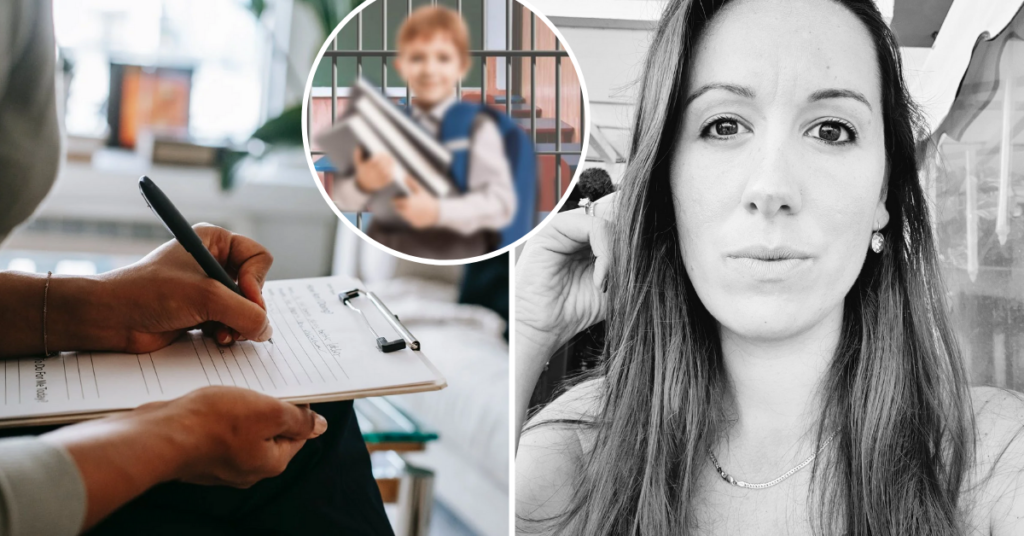Malta’s Students With Behavioural Problems Left Unaided: Analyst Responds To Young Boy With Disorder Being Barred From School

A young Maltese boy with a behavioural disorder was barred from attending his new school, and one behavioural analyst has warned that a lack of resources and training is leaving educators at a loss when dealing with complex situations.
John* was diagnosed with Oppositional Defiant Disorder (ODD), meaning he can be uncooperative, defiant, and hostile.
His parents had even sent a detailed report to the school, which was never examined – until it was too late. He has now been barred from physical lessons following an episode in the classroom on his first day at a new school.
A behaviour analyst spoke to Lovin Malta to comment on the incident.
Certified behaviour analyst Natasha Attard explains what a teacher and school should do in such a scenario, as well as the lack of resources and medication-centred approach that make the field of behaviour a tricky one in Malta.
Attard said that before a student is asked to stay at home after repeated risky or disrupting behaviour, schools should preferably attempt to find an alternative learning space or add a second LSE for support.
“A zero-tolerance policy creates an environment that is less than tolerable of the needs of children with complex needs. Often, it’s also unrealistic, keeping in mind that behaviours are not in and of themselves the only difficulty a child will be facing.”
Besides, these kinds of behaviours often do not emerge out of nowhere. “The child would have a history of certain behaviours in their repertoire. If they don’t, and it does emerge “out of the blue”, there are other factors to consider – like physical health or personal emotional situations.”

In the case of children with additional needs, behaviours tend to emerge, build up and eventually escalate. “Sure, sometimes this may happen quite fast,” Attard said. “But there is generally time to act and seek support before the situation has degraded to the point of exclusion.”
What’s important is understanding why the behaviours developed in that setting, because without doing so it is impossible to reduce them. Moreover, Attard adds, expecting the parents to solve the school-behaviour situation is ambitious.
But the school can’t solve the issue on its own, either. “Local research studies have demonstrated that teachers often feel a lack of support and training when it comes to adapting for a certain level of need, and feel they need hands-on support in order to cope.”
Therefore, schools often find themselves at a loss. Without the right training and specialists at hand to support, and a lack of progress being made, they feel they are left with no other choice than to exclude the learner.
This, in turn, leaves parents stranded, searching for help and questioning what their next steps would be to ensure their child accesses learning one way or another.
On top of that, in Malta, the approach leans heavily towards a medical model, which means that children are frequently being medicated for behaviour – sometimes upon conditions posed by the school.
“Medication in the absence of behaviour support, environmental adaptations, skills teaching for the learner and training for staff is unlikely to lead to any fruitful outcomes. Not because medication is ineffective – but because the medication does not lead to the acquisition of skills.”

“What schools should do when they are faced with learners that are at risk of developing behaviours that challenge is seek support, training and consultation from behaviour specialists with experience in working with such complex behaviour.”
The only problem is that the field of behaviour is in its infancy in Malta. Currently, a number of behaviour analysts are available, but only in the private sector – which creates a barrier for families who are unable to access it due to financial reasons.
So the issue of inclusion of children with additional needs remains problematic in Malta. “Inclusion is no longer just about physical space, but about ensuring that the school is able to meet the needs of the learner, no matter how complex or diverse these may be.”
“And, if nothing else, before an exclusion is put into effect, a school must have pulled in necessary resources and specialists, attempted every possible accommodation and given reasonable time for progress.”
“How else can we be confident that we are doing everything possible to ensure that learners with complex needs access education?” Attard wonders.
Natasha Attard spoke to Lovin Malta earlier this year as the clinical director of the Hand in Hand school, a centre focused on using Applied Behaviour Analysis therapy as a means to addressing children with autism’s challenging behaviours.
Check out the interview below:
Share this with someone who needs to know
